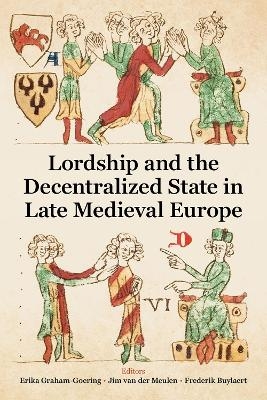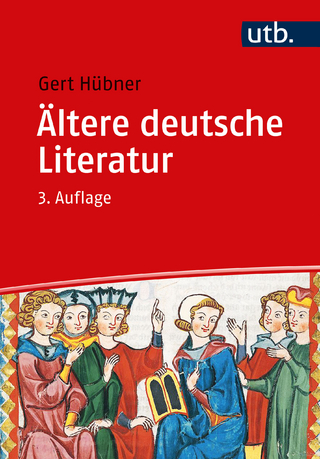
Lordship and the Decentralised State in Late Medieval Europe
Seiten
2025
Oxford University Press (Verlag)
978-0-19-726784-4 (ISBN)
Oxford University Press (Verlag)
978-0-19-726784-4 (ISBN)
- Noch nicht erschienen (ca. Januar 2025)
- Versandkostenfrei innerhalb Deutschlands
- Auch auf Rechnung
- Verfügbarkeit in der Filiale vor Ort prüfen
- Artikel merken
Lordship and the Decentralised State in Late Medieval Europe rethinks the rise of modern European states as a process of decentralisation. The idea that states made lordships obsolete is challenged by showing how the distribution of authority among local lords reinforced the development of new political systems.
The origins of modern European states are often traced back to the expansion of royal and princely authority in the late Middle Ages, transforming scattered power structures into centralised governments.
Lordship and the Decentralised State in Late Medieval Europe rethinks state formation as a process of decentralisation, exploring how these governments willingly left power to lesser political players. It challenges the assumption that the rise of states made lordship obsolete, showing instead how distributing authority among local lords reinforced the development of new political systems.
The contributors tackle this fresh perspective on lordship and state formation from two complementary angles. Detailed snapshots of lordship in France and the Low Countries assess the political significance of different aspects of lordly power. Historiographical essays discuss frameworks for understanding relationships between lordship and the state in contexts across Europe. These comparative perspectives establish an innovative approach to a key question in political history.
The origins of modern European states are often traced back to the expansion of royal and princely authority in the late Middle Ages, transforming scattered power structures into centralised governments.
Lordship and the Decentralised State in Late Medieval Europe rethinks state formation as a process of decentralisation, exploring how these governments willingly left power to lesser political players. It challenges the assumption that the rise of states made lordship obsolete, showing instead how distributing authority among local lords reinforced the development of new political systems.
The contributors tackle this fresh perspective on lordship and state formation from two complementary angles. Detailed snapshots of lordship in France and the Low Countries assess the political significance of different aspects of lordly power. Historiographical essays discuss frameworks for understanding relationships between lordship and the state in contexts across Europe. These comparative perspectives establish an innovative approach to a key question in political history.
Erika Graham-Goering is Associate Professor in the Department of Archaeology, Conservation, and History at the University of Oslo. Jim van der Meulen is a social historian at Ghent University with a broad specialisation in the Low Countries between 1300 and 1700, combining expertise in political, socio-economic, cultural, and environmental history. Frederik Buylaert, Professor of History at Ghent University, is a social historian of the Low Countries with a side interest in comparative history and the history of historiography.
| Erscheint lt. Verlag | 23.1.2025 |
|---|---|
| Reihe/Serie | Proceedings of the British Academy ; 268 |
| Zusatzinfo | 8 figures, 5 maps |
| Verlagsort | Oxford |
| Sprache | englisch |
| Themenwelt | Geschichte ► Allgemeine Geschichte ► Mittelalter |
| Geisteswissenschaften ► Geschichte ► Regional- / Ländergeschichte | |
| ISBN-10 | 0-19-726784-X / 019726784X |
| ISBN-13 | 978-0-19-726784-4 / 9780197267844 |
| Zustand | Neuware |
| Haben Sie eine Frage zum Produkt? |
Mehr entdecken
aus dem Bereich
aus dem Bereich
eine neue Geschichte des Mittelalters
Buch | Hardcover (2023)
C.H.Beck (Verlag)
38,00 €


